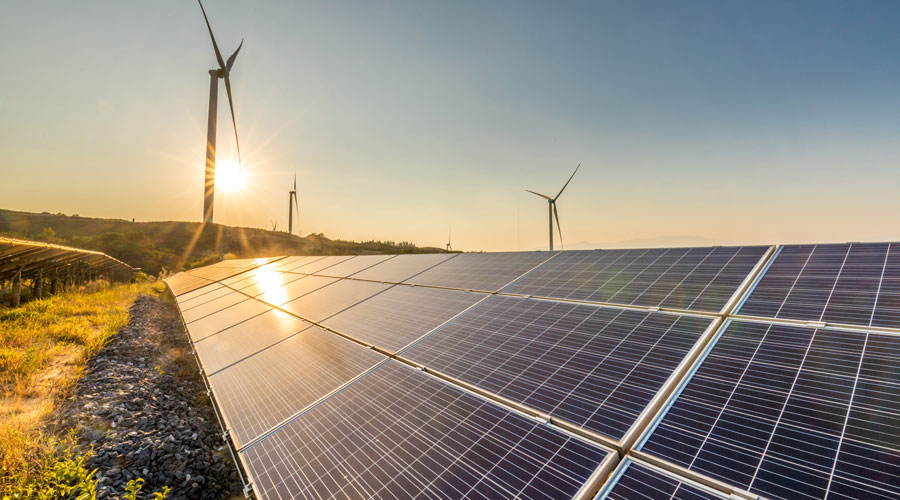We stand at a pivotal moment in American history to make transformational impacts that will accelerate the clean energy transition, mitigate the impacts of climate change, and deliver economic-focused restorative justice to Black, Brown, and underserved communities. These communities have been disproportionately impacted by our nation’s energy system for decades and remain the most concerned about the climate imperative.
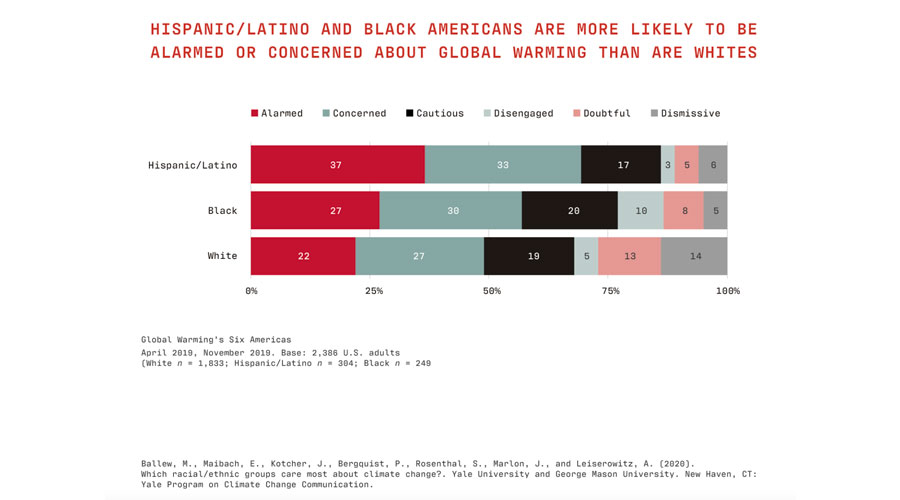
Earth’s climate is now changing faster than at any point in modern history, primarily due to human activities.1 These changes increase the severity and frequency of extreme weather events, and communities of color are particularly vulnerable.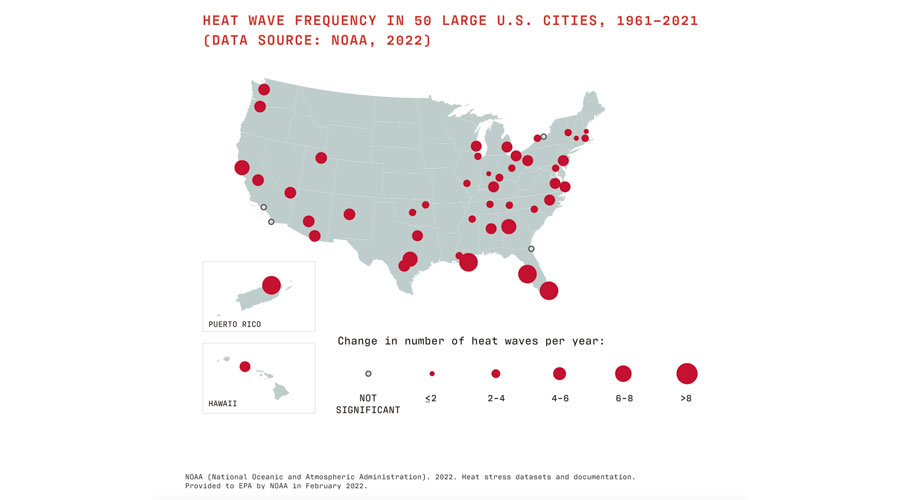
EPA: Maps which show the increase in duration, intensity, and frequency of heat wave events for 50 major US cities.
Climate change is a crisis that will adversely impact the health and safety of Black, Brown, and underserved communities more than any other American demographic group.3 Greenhouse gas emissions are the leading cause of climate change, and the transportation and electricity sectors are the two largest sources of U.S. emissions.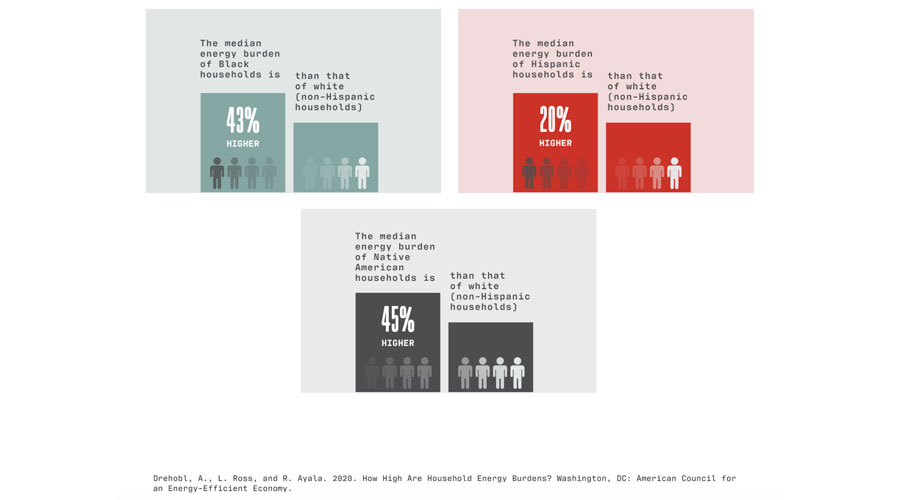
By electrifying transportation and replacing fossil fuel plants with new, affordable, and abundant clean energy projects, this generation has an opportunity to solve America’s contribution to the global crisis while drastically reducing the inequitable energy burden on Black, Brown and underserved communities and households across our nation.
Transitioning the U.S. energy system to run on renewable energy also presents a historic opportunity for job creation and new economic development, as well as the ability to invest in, and provide benefits to, communities negatively impacted by fossil fuel pollution.
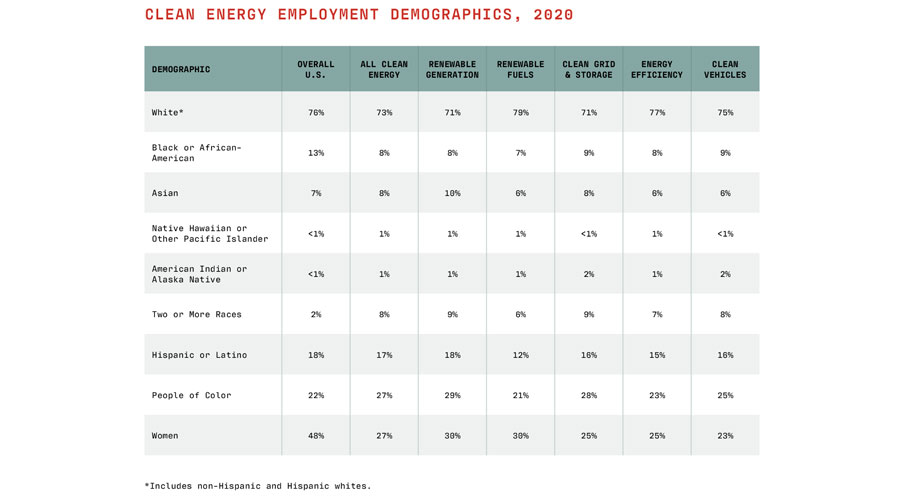
But equitable investment will not happen automatically.
In this inaugural climate and clean energy section of the annual State of Black America Report, presented by the American Council on Renewable Energy in partnership with the National Urban League, our nation’s foremost experts on environmental justice, energy policy, renewable energy, and civil rights will examine the past and present impacts of fossil fuel and other pollution on Black, Brown and underserved communities, and illustrate a realistic path forward toward realizing a truly just and equitable clean energy future. As you’ll learn, the opportunities are immense, and the consequences for inaction are even greater.

